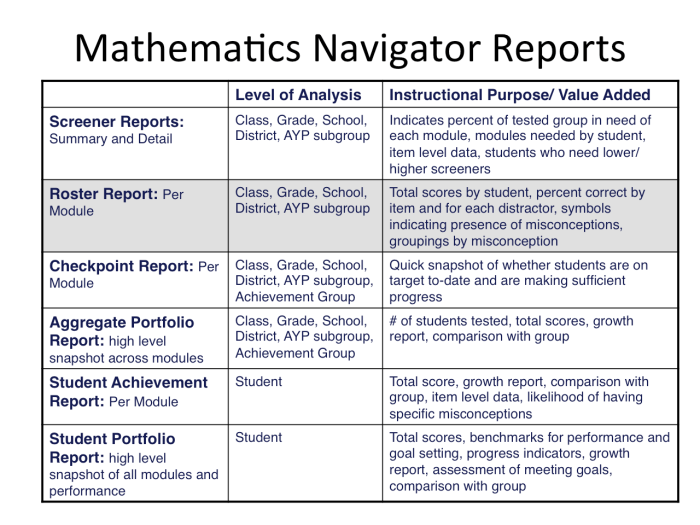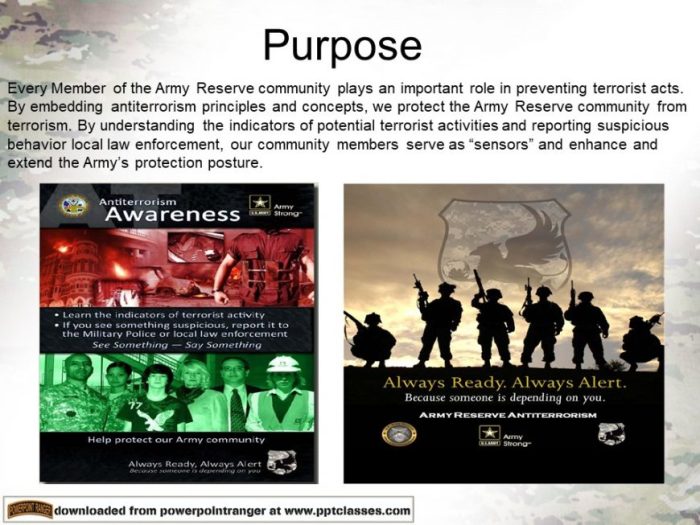Embarking on a journey to understand the Anti Terrorism Level 1 Pretest Answers, this comprehensive guide unveils the intricacies of this crucial assessment. Delving into its purpose, structure, and strategies, this discourse empowers individuals to navigate the complexities of the pretest with confidence and precision.
The Anti Terrorism Level 1 Pretest serves as a gatekeeper, evaluating candidates’ knowledge and skills in countering terrorism. Its target audience encompasses professionals seeking to enhance their expertise in anti-terrorism measures. To qualify, individuals must possess a solid foundation in security principles and practices.
Anti-Terrorism Level 1 Pretest: Overview: Anti Terrorism Level 1 Pretest Answers

The Anti-Terrorism Level 1 Pretest is an assessment designed to gauge the knowledge and skills of individuals in understanding and responding to terrorist threats. It is intended to provide a baseline assessment of participants’ preparedness in countering terrorism and identify areas for improvement.
The pretest is open to individuals working in law enforcement, intelligence, emergency management, and other related fields. It is particularly relevant for those who are responsible for developing and implementing anti-terrorism strategies and tactics.
Test Format and Structure
The pretest consists of multiple sections, each covering a specific aspect of anti-terrorism. These sections typically include:
- Terrorism Fundamentals
- Terrorist Tactics and Techniques
- Intelligence Gathering and Analysis
- Operational Response
- Legal and Ethical Considerations
The pretest is timed, with a limited amount of time allocated for each section. The scoring system varies depending on the specific format of the test, but typically involves a combination of multiple-choice questions, short answer responses, and scenario-based exercises.
Content Coverage
The pretest covers a wide range of topics related to anti-terrorism, including:
- Types of terrorism and terrorist organizations
- Motivations and ideologies of terrorists
- Methods of terrorist attacks
- Intelligence collection and analysis techniques
- Operational tactics for countering terrorism
- Legal and ethical considerations in anti-terrorism operations
Candidates should be familiar with these concepts and be able to apply them to real-world scenarios.
Preparation Strategies
To effectively prepare for the pretest, candidates are advised to:
- Review official training materials and resources
- Take practice tests to familiarize themselves with the format and content
- Attend workshops or seminars on anti-terrorism
- Stay up-to-date on current events and emerging terrorist threats
- Network with professionals in the field of anti-terrorism
By following these strategies, candidates can increase their chances of success on the pretest and demonstrate their readiness to contribute to anti-terrorism efforts.
Sample Questions and Answer Explanations
| Question | Answer Explanation |
|---|---|
| Which of the following is a key motivation for terrorist organizations? | A. Religious extremism |
| What is a common tactic used by terrorists to evade detection? | B. Sleeper cells |
| Which of the following is an ethical consideration in anti-terrorism operations? | C. Balancing security with civil liberties |
Common Mistakes and Pitfalls, Anti terrorism level 1 pretest answers
Candidates should be aware of the following common mistakes and pitfalls during the pretest:
- Underestimating the importance of preparation
- Failing to understand the scope and content of the test
- Attempting to memorize answers rather than understanding concepts
- Ignoring the time constraints
- Not following instructions carefully
By avoiding these mistakes, candidates can improve their performance on the pretest and demonstrate their proficiency in anti-terrorism.
General Inquiries
What is the purpose of the Anti Terrorism Level 1 Pretest?
The Anti Terrorism Level 1 Pretest assesses candidates’ knowledge and skills in countering terrorism.
Who is eligible to take the pretest?
Professionals with a solid foundation in security principles and practices are eligible.
What is the format of the pretest?
The pretest typically consists of multiple sections covering various aspects of anti-terrorism.
How can I prepare for the pretest?
Study materials, practice tests, and guidance from experts can aid in effective preparation.


